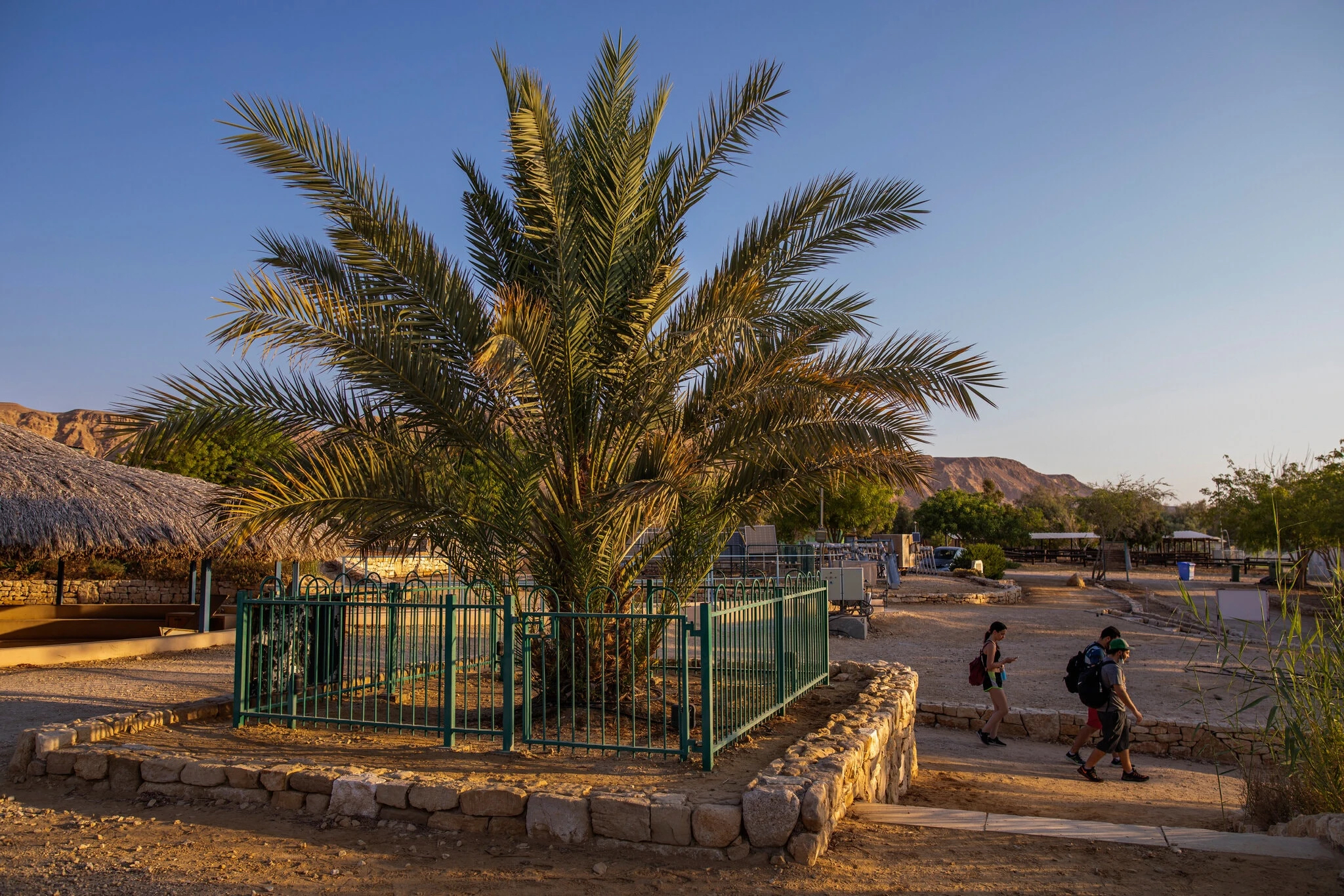Dates are one of Israel’s seven crops mentioned in the Bible as important to the land. The palm leaf is a symbol of victory, triumph, and peace and is associated with Jesus’ triumphal entry into Jerusalem, which is celebrated on Palm Sunday, when the Gospel of John says of the inhabitants of Jerusalem, ”They took palm branches and went out to meet him.”
The palm tree is mentioned more than 50 times in the Bible and refers to the date palm which grows in the eastern part of the Middle East, where a large proportion of these palms grow in Israel.The leaves of the palm were used during the Feast of Tabernacles (Leviticus 23:39-40), when Israel celebrated its entry into the promised land after 400 years of slavery in Egypt and a 40-year wandering in the desert. Within Judaism, the lulav, a closed frond of the date palm, is therefore a part of this festival.
In biblical times, date palms marked desert oases and provided nourishment for Israel in the wilderness (Exodus 15:27; Numbers 33:9). Palms were also prominent in Solomon’s Temple. Images of palms were engraved on the walls (1 Kings 6:29), on the doors (1 Kings 6:32, 35), and on the bronze basins (1 Kings 7:36). Dates are one of Israel’s seven species of crops mentioned in the Bible as important to the land. The other species are grapes, olives, wheat, barley, pomegranates, and figs.
Symbol of Victory
Jesus was met with palm branches when he rode into Jerusalem on a donkey shortly before his crucifixion (John 12:13). The palm leaf is a symbol of victory, triumph, and peace and is associated with Jesus’ triumphal entry into Jerusalem, which is celebrated on Palm Sunday when the Gospel of John says of the inhabitants of Jerusalem, ”They took palm branches and went out to meet him” (John 12:13). Furthermore, palm leaves are present when John writes in the Book of Revelation: the great, white-robed crowd before the throne has palm branches in their hands (Revelation 7:9).
The date palm can grow to over 20 meters tall and can grow singly or in a group of several stalks originating from a single root system. The palm is long-lived and can produce 45 to 90 kg per tree in one season. It begins to bear fruit from the age of five and stops bearing fruit at the age of 80.
Major Export in Israel
Several Israeli companies export dates of many different varieties to retailers and distributors all over the world. Israeli dates are widely considered to be of high quality, and there are many different varieties in Israel, where cultivation goes a long way back in time. Countries in the Middle East around the Mediterranean have both the fertile soil and the climate necessary for their growth.
The most common dates exported from Israel are Medjool dates in bulk, with an enormous size and rich flavor. Agrifood Marketing, which exports Israeli dates to six continents, for example, supplies bulk Medjool dates in sizes ranging from 12 to 27 grams per date.
The biggest factor behind the recent boom in bulk Medjool date exports from Israel is the drive to find healthier foods among more health-conscious consumers. Medjool dates are highly nutritious and have a rich and velvety texture with a caramel-like sweetness, both of which are due to the ideal climate found in Israel.


